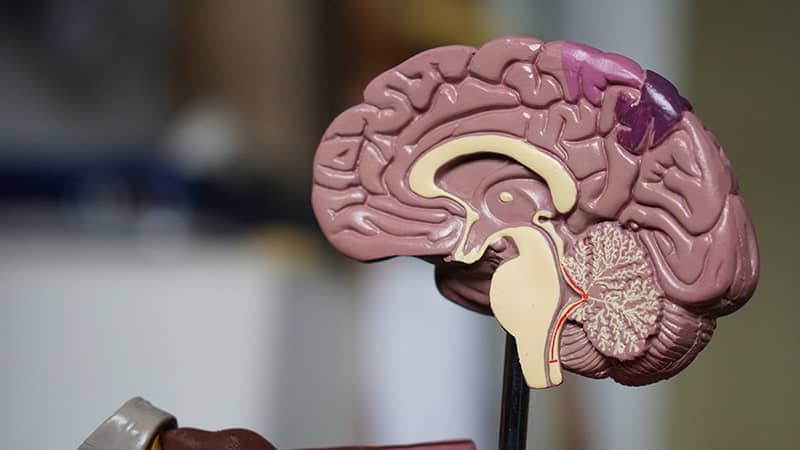This month, you may notice that many people are wearing purple or shining a purple light. That’s because they’re raising awareness for Alzheimer’s and Brain Awareness Month.
Scientists are still working tirelessly on Alzheimer’s research to discover new treatment options for this brain disease and others like it, such as dementia, MS, Parkinson’s, and more.
Did you know that a healthy human brain has billions of neurons that process and transmit information through electrical and chemical signals? They’re responsible for sending messages through different parts of the brain and from the brain to the muscles and organs.
Alzheimer’s disease interrupts the signals among the neurons, which leads to loss of function and cell death. Studies show that Alzheimer’s affects over 5 million people in the United States alone. As many as 1 in 3 elderly patients die with Alzheimer’s or dementia.
The importance of the vital research that scientists are continually doing is obvious. Finding treatment options that work are essential to the well-being of the entire human race.
Alzheimer’s Care
Taking care of Alzheimer’s patients is a big responsibility. Approximately 15 million caregivers give 18 billion hours of their unpaid time to care for their loved ones with ALZ. Many report that they even have to take on an extra job, postpone retirement, and spend upwards of $5,000 a year for care.
For many families, this care puts a serious strain on their resources. That’s why ALZ Awareness Month is so needed. It helps family, friends, and co-workers recognize the urgency and the necessity surrounding Alzheimer’s treatment and care.
If a cure has not been found, by 2050, America expects costs to rise from their current 236 billion dollars per year up to 1 trillion dollars.
Prevention
While a cure has not yet been found, there are some studies that have shown a few things you can do at any stage in your life to help minimize the risk of getting Alzheimer’s.
- Exercise regularly
- Enjoy puzzles, games, or similar mental stimulation often
- Eat a Mediterranean diet
- Get plenty of high-quality rest
- Connect with family and friends regularly
If you’re concerned about your risk, you can talk with your doctor about other activities and preventive care you can do to keep your brain healthy and active.
Take Action
Wear Purple. Remember to wear purple this month to help spread the word about the importance of brain health.
Participate in the Longest Day. On June 20 (the summer solstice or the day with the most light), people from across the world will participate in a fundraising activity of their choice to help fight the darkness of Alzheimer’s. For more info, go to: Alzheimers Association
Take the Brain Health Checkup: https://healthybrains.org/brain-check-up/


 Schedule a Tour Today!
Schedule a Tour Today!







